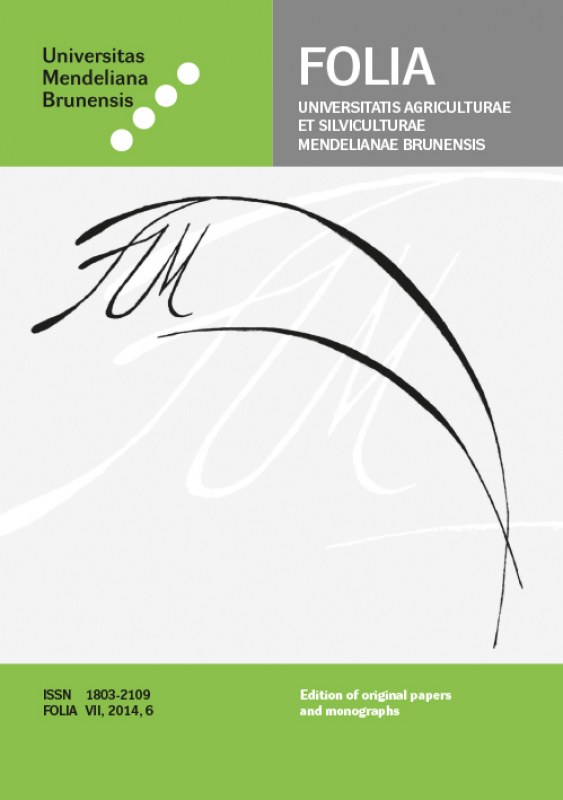
DOI: 10.11118/978-80-7509-881-8-0126
Ethnoecology as a Tool for the Memory Construction, Integrity of Knowledge and Local Sustainable Development in the Vaupés Department (Colombia), Northeast of the Colombian Amazon
- G. D. Beltrán Zapata, N. A. Castro Pineda
Medicinal plants have played an important role in the management and treatment of disease since the beginning of human existence. In this sense, indigenous cultures have acquired a broad knowledge of traditional medicine by their constant interaction with the environment, healing diseases over thousands of years. The Vaupés department is very diverse, biologically and culturally; approximately 85% of the population is indigenous. Unfortunately, throughout history, different processes have led to an acculturation of indigenous communities in this area, resulting in the loss of knowledge and of the original practices of traditional medicine, including ancient transfer models. Currently, traditional healers in the Vaupés (and Colombia in general) see the need to transmit their knowledge to future generations, to strengthen the transfer systems, to rejuvenate their identity, as well as to integrate them into models of local sustainable development. We would like to contribute to this process of memory recovery and knowledge revival.
Klíèová slova: traditional medicine, Vaupés – Colombia, ethnoecology, memory, local sustainable development
stránky: 126-132, Publikováno: 2014, online: 2022
Reference
- Acosta M., Mendoza H. & García, R. (2007). Hacerlo amanecer: Una experiencia participativa de diálogo de saberes en la construcción de procesos de etnodesarrollo con pueblos indígenas en la Amazonía colombiana. Estudio de caso departamentos de Caquetá y Amazonas [Wake it up: A participatory experience in knowledge dialogue, creating ethno-development processes with indigenous people in the Colombian Amazon. Case Study in Caquetá and Amazonas departments]. Estudio de caso departamentos de Caquetá y Amazonas. Etnoecología y desarrollo sostenible, 187.
- Alexiades, M. N. (1999). Ethnobotany of the Ese Eja: Plants, health and change in an Amazonian Society. City University of New York.
- Clavijo, C. (2011). Sistemas médicos tradicionales en la Amazonia nororiental: Salud y saberes alternativos [Traditional medical systems in the northeastern Amazon: Health and alternative knowledge]. Iatreia, 24(1), 5-15.
 Pøejít k pùvodnímu zdroji...
Pøejít k pùvodnímu zdroji... - Da Cruz, H. (2007). Etnoecología y desarrollo sostenible [Ethnoecology and sustainable development]. Etnoecología y desarrollo sostenible, 5-20.
- Fajardo, D. (2011). Perspectivas del problema agrario Colombiano: Avoid displacement, adjustments to the public policy for the prevention of and protection against displacement [Perspectives of the Colombian agrarian problem: Avoid displacement, adjustments to public policy for the prevention and protection against displacement]. Colombia, Bogotá: CODES.
- Goldman, I. (2013). Cubeo Heh newa religious thought: Metaphysics of a Northwestern Amazonian People. New York Chichester, West Sussex: Columbia University Press.
- Gudynas, E. (2011). Buen vivir: Germinando alternativas al desarrollo [Well-being: Germinating development alternatives.] America Latina en movimiento, 461-481.
- Hernández, J. (1993). Una síntesis de la historia evolutiva de la biodiversidad en Colombia [A synthesis of the evolutionary history of biodiversity in Colombia]. Nuestra diversidad biológica, 270-287.
- Hourtart, F. (2010). Pueblos y Sumak Kawsay: Los indígenas y los nuevos paradigmas de desarrollo [Pueblos and Sumak Kawsay: Indigenous people and new development paradigms]. Adital, 1-5.
- Martin, G. J. (1995). Ethnobotany: A methods manual. London: Chapman and Hall.
 Pøejít k pùvodnímu zdroji...
Pøejít k pùvodnímu zdroji... - Perdomo, A. (2004). Globalización y salud en los pueblos indígenas del Vaupés [Globalization and health in the Vaupés indigenous communities]. Libro de Memorias Primer Encuentro Latinoamericano de Estudiantes de postgrado de ciencias Sociales.
- Pérez, M. L. & Argueta, A. (2011). Saberes indígenas y diálogo intercultural [Indigenous knowledge and intercultural dialogue]. Cultura científica y saberes locales, 5(10), 31-56.
- Quijano, A. (2007). El giro decolonial: reflexiones para una diversidad epistémica más allá del capitalismo global. Capítulo VI: Colonialidad del poder y clasificación social. [Decolonial shift: Reflections on epistemic diversity beyond the global capitalism. Chapter VI: Coloniality of power and social classification]. Bogotá: Siglo del hombre editores.
- Toledo, V. M. (1990). La perspectiva etnobotánica: Cinco reflexiones acerca de las "ciencias campesinas" sobre la naturaleza con especial referencia en México [The ethnobotanical perspective: Five reflections on the "rural natural science" with special reference to Mexico]. Ciencias, especial 4, 22-29.
- Toledo, V. & Barrera, N. (2008). Memoria biocultural [Biocultural memory]. Barcelona: Icaria editorial.
- Toledo, V. (2009). Por qué los pueblos indígenas son la memoria de la especie [Why are indigenous people memory of the species]. Papeles de relaciones ecosociales y cambio global ,107, 27-39.
- Zuluaga, G. (2006). Medicina indígena y occidental: Diálogo de saberes [Indigenous and western medicine: Knowledge dialogue]. Del Rosario University. Universidad, Ciencia y Desarrollo 1(1), 1-12.


